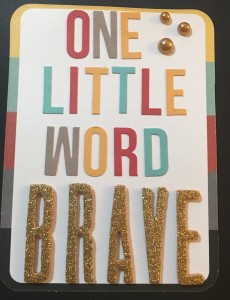
Since we are all Game Of Thrones fans in this house, we think she’s saying “Where Are My Dragons??!!
We recently experienced a life-changing event in our family. Our newest granddaughter, Adeline Rey, came into the world on May 4th. But she tried to arrive much earlier, which resulted in bed rest for mom and a team effort on the part of the family to ensure that mom and baby were cared for and all the moving pieces and parts of family life and work responsibilities carried on, as usual.
During an email conversation with a fellow coach, I was reminded of the importance of preparing for impending stress, even when that stress is a result of an incredibly joyful event. I thought about what she said and realized it applies to your company or your work teams as much as it does for self and family.
The idea of stress-proofing is anticipating, as much as possible, what the stressors will be and how you will respond to them. So in the workplace, you might be bidding for a new contract, opening a new office or producing a new product. Extra hours may factor into the anticipation of stress, as well as taking on additional roles or responsibilities, either temporarily or permanently. And of course, life happens and you may experience the need to stress-proof your life and business due to an accident, an addition to the family or a sudden illness that causes you to shift into caregiving mode. You feel as though, for whatever reason, you may be exhausted or anxious about change.
When we are under stress, we often find ourselves feeling as though things are out of control. Or we become more intolerant of others, realizing that things that were negligibly bothersome before now seem large and extremely annoying. Stress can cause individuals to shut down and stop communicating effectively. Add a dose of sleeplessness or exhaustion and you’ve got a recipe for angry responses, team members dropping balls or meltdowns.
Stress proofing helps you keep some of the negative responses or conversations to a minimum. The process includes meeting with the team before the change or extra work begins and considering some of the following:
1) What stress points can you anticipate? Can you break down each aspect of the project or process and think about what stress producing events might occur?
2) When you think about your stressful situations in the past, what has worked well for you? What do you want to make sure you don’t bring into the plan this time?
3) Who will handle each aspect of the project? Who will cover what and what is the absolute minimum acceptable response to the everyday, as well as the new stressful situation? What can’t be left undone and what can be divided up most effectively?
4) How will you effectively track progress? Do lists or visual prompts help you feel more in control?
5) What will you do during your down time to mitigate your stressful responses? Do you need to ensure you continue or add exercise? Proper hydration? Music or time for a movie or your favorite television show? Music and laughter are very useful in creating a greater sense of calm and wellbeing.
6) What will you do to shift your response if you find yourself moving into the role of control freak or generally becoming more intolerant of people or situations?
7) Who else needs to know that you are moving into high gear and may not respond as quickly or calmly as usual?
8) What supports do you need to call in? Who else besides yourself or your team members can take up some of the personal or professional slack?
Once you have an idea of what this may take and how you can implement the plan to help mitigate the stress, consider jotting down some notes about your stress-proofing plan so you don’t forget when the going gets really tough.
Also, don’t forget that your response to things during this time is coming from your perspective of things. And your perspective may be the complete opposite of someone else’s. You are feeding yourself information about what’s happening and that information may be based in reality or based in a slightly exhausted, anxious or even panicked version of reality. Try to step away and look at things from several different lenses. Ask someone who isn’t in the middle of it all whether you are being unreasonable or coming at things from a skewed perspective. Then figure out how to get closer to a more realistic view.
Self-care needs to go into high gear when you are facing an increase in production or a change in the way you normally work. Sadly, self-care is often the first thing that we take off the plate. Don’t forego those things that calm or comfort you because you have less time. Find a space to slip those self-care activities into your day as much as possible. And if you absolutely can’t, resume them as soon as you can. You’ll feel yourself coming back to your regular routine fairly quickly as long as you are mindful of what you need to include during the day.
I’d love to hear your ideas about stress-proofing and how you might approach the next situation in this way. A little bit of thought around stressful situations and responses will go a long way toward making you feel better and help you work through it with a greater sense of peace and purposeful action.
(PS: A couple of years ago, I stumbled on coloring books for adults and realized the claiming benefit a few moments of coloring can have on my mood. Now, they are all the rage and you can find them almost anywhere. If you haven’t given coloring a try since grade school, I highly recommend it as a stress-proofing tool!)




